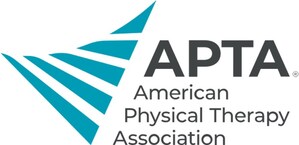
Therapy Groups Applaud Introduction of the Remove Duplicative Unnecessary Clerical Exchanges Act
Bipartisan Legislation Would Reduce Red Tape and Paperwork for Therapists Under Medicare
ALEXANDRIA, Va., Feb. 7, 2024 /PRNewswire/ -- The American Physical Therapy Association, APTA Private Practice, and the American Occupational Therapy Association applaud new legislation that would lower administrative costs for therapy providers to help mitigate continued payment cuts. Introduced in the U.S. House of Representatives by Reps. Don Davis, D-N.C., and Lloyd Smucker, R-Pa., as the Remove Duplicative Unnecessary Clerical Exchanges Act, or the REDUCE Act, this bipartisan legislation would streamline the current plan of care certification requirement under Medicare Part B to reduce administrative burden and paperwork for physical therapists.
"The American Physical Therapy Association is grateful for Rep. Davis and Rep. Smucker's leadership on this important bipartisan legislation to reduce the Medicare administrative burden on physical therapists," said APTA President Roger Herr, PT, MPA. "Physical therapy practices are currently facing many challenges under Medicare, from unsustainable cuts to workforce shortages. Dealing with unnecessary red tape just adds to those challenges and gets in the way of care. This legislation helps reduce obstacles."
Given the current pressures on therapy providers, including recent year-over-year fee schedule cuts, APTA, AOTA, and APTA Private Practice continue to seek opportunities to reduce red tape and administrative costs to mitigate the impact of these payment cuts for therapy. The time and resources spent by therapists and physicians in procuring a timely signature adds unnecessary cost, potentially delays essential services, and fails to contribute to improved quality of care.
APTA Private Practice President Mike Horsfield, PT, MBA, explained, "Our members are in the business of caring for their communities. The REDUCE Act will allow our members to spend more time with their patients rather than tracking down unnecessary paperwork."
"This legislation would help relieve some of the pressure currently faced by occupational therapy practitioners in private practice, who have seen year-over-year cuts while operating costs increase. The need to track down a physician's signature when a patient has already been referred to occupational therapy potentially delays care and adds unnecessary administrative costs that have nothing to do with the quality of care," said AOTA President Alyson Stover, MOT, JD, OTR/L, BCP.
Currently, Medicare Part B guidelines permit Medicare beneficiaries to receive therapy evaluation and treatment services with or without a physician's order. The physical therapist or occupational therapist may evaluate that patient, formulate a plan of care, and commence treatment. However, under current certification requirements, the therapy provider must submit the plan of care to the patient's physician and have it signed and returned within 30 days to receive payment. The clerical signature requirement creates unnecessary paperwork and stress for therapists as they often struggle to track down signatures before the 30 days are up.
This proposed policy would clarify a new streamlined model such that in those cases when outpatient therapy services are provided under a physician's order, the plan of care certification requirement will be deemed satisfied if the qualified therapist simply submits the plan of care to the patient's referring physician within 30 days of the initial evaluation; therapists would no longer need to obtain a signed plan of care within 30 days from the physician who referred the patient.
The American Physical Therapy Association represents more than 100,000 physical therapists, physical therapist assistants, and physical therapy students nationwide. Visit apta.org to learn more.
SOURCE American Physical Therapy Association







Share this article